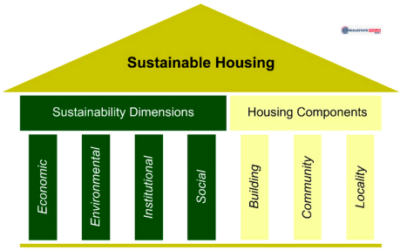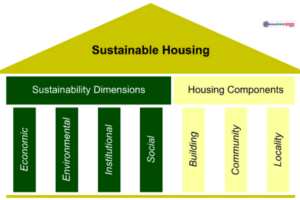

Sustainable Real Estate Outlook for 2025: REITs and Recession Predictions
The real estate market in 2025 is expected to face challenges, with some analysts predicting a potential recession. A top expert in the field, who has been closely following real estate trends, is calling for a slowdown in the economy. This could have significant effects on both real estate investment trusts (REITs) and the broader housing market.
Real Estate Investment Trusts (REITs) are a major part of the real estate market. These companies own, operate, or finance real estate properties and are popular among investors. However, the outlook for REITs in 2025 is not as positive as it has been in recent years. Many analysts believe that the market will experience difficulties, especially if the economy enters a recession.
The recession prediction is based on several factors, including rising interest rates and inflation. These economic pressures could slow down economic growth, which would directly affect the real estate market. Higher interest rates make borrowing more expensive, and this could reduce the demand for both residential and commercial properties.
In addition to higher borrowing costs, the broader economy could also face lower consumer spending. If people are worried about the future, they may be less likely to buy homes or invest in real estate. This reduced demand could put pressure on property prices and REITs.
Despite these concerns, some experts believe that certain types of real estate will remain strong in 2025. For example, some areas of the housing market may continue to grow, particularly in regions where demand is steady. Additionally, the commercial real estate market could still see activity in specific sectors, such as warehouses and data centers.
Another challenge for REITs in 2025 could be changes in work patterns. With more people working from home, office spaces may be in less demand. This could hurt commercial REITs that own office buildings. On the other hand, REITs focused on logistics and industrial properties could benefit from increased demand for warehouses and distribution centers.
Many analysts believe that REITs will need to adapt to these changing market conditions. Some may need to shift their focus to more stable and resilient sectors. Others may have to reconsider their strategies for financing and acquiring new properties in the face of a potential recession.
The housing market in 2025 could also be affected by a slowdown in the economy. If a recession occurs, it may make it harder for people to afford homes. This could lead to lower home sales and slower price growth. Additionally, fewer people may be able to afford to rent, which could hurt the rental market.
For homebuilders, a recession could mean slower growth and fewer projects. Developers may be less likely to start new projects if the economy is uncertain. This could lead to fewer new homes on the market, which could affect both buyers and renters.
One of the main concerns for the housing market in 2025 is affordability. With inflation and rising interest rates, many people may find it difficult to purchase homes. This could create a situation where fewer people are able to enter the housing market, which would put downward pressure on demand.
On the other hand, some areas of the housing market may continue to see growth. The demand for homes in suburban areas, for example, may remain strong as people continue to leave crowded urban centers. These areas may offer more affordable housing options, even in the face of rising interest rates.
The commercial real estate market could also see a shift in 2025. Office spaces may face challenges due to the continued trend of remote work. However, some sectors of commercial real estate, such as warehouses and logistics, could see growth due to the increase in e-commerce and online shopping.
In addition, the multifamily housing sector could continue to show resilience in the coming years. The demand for rental properties could remain stable, even if the economy slows down. Many people may be unable to afford to buy homes, which could increase the demand for rental units.
As for REITs, those with a strong portfolio of rental properties or logistics-focused real estate may fare better in 2025. However, REITs that have heavy exposure to office buildings or other commercial properties may face more difficulties. This could lead to a shift in investor interest toward REITs with more diversified holdings.
Overall, the real estate market in 2025 will be shaped by many factors. The possibility of a recession is a key concern, as it could slow economic growth and reduce demand for real estate. However, certain sectors of the market, such as logistics and rental properties, may continue to show growth.
For investors in REITs, it will be important to closely monitor the economic situation and adjust their strategies accordingly. REITs with diversified portfolios may be better positioned to handle economic fluctuations, while those focused on more vulnerable sectors may face greater risks.
Despite the potential challenges, some analysts believe that the real estate market will eventually recover from any downturn. As with any market, real estate tends to go through cycles, and a recession may only be temporary. The key will be for investors and developers to remain flexible and adapt to the changing conditions.
In the housing market, affordability will continue to be a key issue. If a recession occurs, it could make homeownership even more difficult for many people. This may lead to more demand for rental properties, which could offer opportunities for REITs focused on multifamily housing.
The outlook for real estate in 2025 remains uncertain, but there are ways to navigate the potential challenges. REITs that focus on resilient sectors like logistics, warehouses, and multifamily housing may be better positioned for success. By staying aware of market trends and adjusting their strategies, investors can continue to benefit from the real estate market, even in a time of economic uncertainty.




































